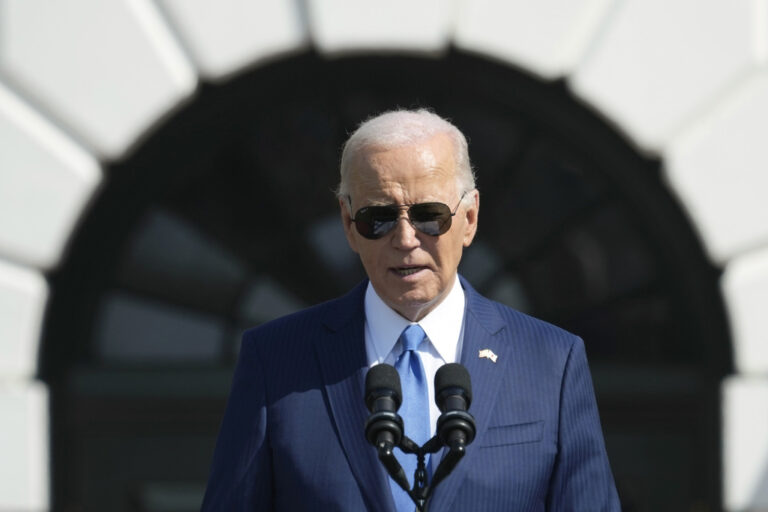 Black Friday is a distant memory. Small Business Saturday is long gone. Now, it’s Cyber Monday’s turn.
Black Friday is a distant memory. Small Business Saturday is long gone. Now, it’s Cyber Monday’s turn.
Cyber Monday, coined in 2005 by a shopping trade group that noticed a spike in online sales on the Monday after Thanksgiving when people returned to their work computers, is the next in a line of days that stores are counting on to jumpstart the holiday shopping season.
This year’s Cyber Monday is expected to be the biggest online shopping day of the year for the third year in a row: According to research firm comScore, Americans are expected to spend $1.5 billion, up from $1.25 billion last year on Cyber Monday, as retailers ramp up deals to get shoppers to click on their websites.
Amazon.com, which is starting its Cyber Monday deals at midnight on Monday, is offering as much as 60 percent off a Panasonic VIERA 55-inch TV that’s usually priced higher than $1,000. Sears is offering $430 off a Maytag washer and dryer, each on sale for $399. And Kmart is offering 75 percent off diamond earrings and $60 off a 12-in-1 multigame table on sale for $89.99.
Retailers are hoping the deals will appeal to shoppers like Matt Sexton, 39, who for the first time plans to complete all his holiday shopping online this year on his iPad tablet computer. Sexton, who plans to spend up to $4,000 this season, already shopped online on the day after Thanksgiving known as Black Friday and found a laptop from Best Buy for $399, a $200 savings, among other deals.
“The descriptions and reviews are so much better online so you can compare and price shop and for the most part get free shipping,” said Sexton, who lives in Queens, N.Y., and is a manager at a utility company.
Sexton also said it’s easy to return an online purchase to a physical store than it had been in previous years. “That helps with gifts,” he said.
How well retailers do on Cyber Monday will offer insight into Americans’ evolving shopping habits. With the growth in high speed Internet access and the wide and increasing use of smartphones and tablet computers, people are relying less on their work computers to shop than they did when Shop.org, the digital division of trade group The National Retail Federation, coined the term “Cyber Monday.”
As a result, the period between Thanksgiving and Cyber Monday has have become busy for online shopping as well. Indeed, IBM Benchmark, which tracks online sales, said on Thanksgiving, a day that historically had not been big for online shopping, online sales this year rose 17.4 percent over 2011. Of that, mobile shopping, or shopping on smartphones and tablets, rose 18.3 percent. Meanwhile, online sales on Black Friday were up 20.7 percent.
For the overall holiday season, comScore predicts online sales will be up 17 percent to $43.4 billion. And the research firm expects online sales to surpass 10 percent of total retail spending this holiday season. The National Retail Federation estimates that overall retail sales in November and December will be up 4.1 percent this year to $586.1 billion
“People years ago didn’t have the kind of connectivity to shop online at their homes. So when they went back to work after Thanksgiving they’d shop on the Monday after,” said Vicki Cantrell, executive director of Shop.org. “Now they don’t need the work computer to be able to do that.”
But as other days become popular for online shopping, Cyber Monday may lose some of its cache. To be sure, Cyber Monday hasn’t always been the biggest online shopping day. In fact, up until three years ago, that title was historically held on the last day shoppers can order items with standard shipping rates and get them delivered before Dec 25.
Even though Cyber Monday is expected to be the biggest shopping day this year, industry watchers say it could just be a matter of time before other days take that ranking.
“Of all the benchmark spending days, Thanksgiving is growing at the fastest rate, up 128 percent over the last five years,” said Andrew Lipsman, a spokesman with comScore.
(AP)






5 Responses
Baruch ha-Shem that Jews don’t have a holiday in December that requires buying expensive gifts. Remember, the best day for shopping is typically Dec. 26. Whereas buying gifts is part of the “avodah” (le-havdil) of their holiday, picking items up at reduced price when stores sell their overstock has no shailoh of avodah zarah.
Akuperma,
The goyim made xmas into that type of holiday just like we made chanuka like that
secondly I wouldn’t be suprised if a jew thought up the idea to boost sales
Ahuperma- which world do you live in? You’ve never had to buy the latest “whatever” for kids Chanukah gifts? The fact is that every retailer raises their price significantly to make a profit throughout the year, they only lower it around goyish holiday time so “they” think they’re getting a great deal, and don’t think twice about the purchase. And when did buying anything become Avodah Zorah? I don’t think we’re talking about lawn decorations.
no one has a holiday that requires buying expensive gifts. i DO get my children presents for chanuka though, and that usually falls in december….not that i get them their presents with black friday or cyber monday deals, but if i found a good deal on something, i would definitely get it. for example, ive been looking for a specific pair of boots (typically $150+, which i would never spend) and last night i found them for $21….should i not have gotten them?
The answer is that I live outside of New York, and was raised outside New York, and am fully aware of what the goyim believe. I assure you buying gifts is the avodah of thei upcoming holiday, and their upcoming holiday is clearly a religious holiday. If you are buying and giving gifts in December, it certainly appears to all the world that you are getting in the spirit of their holiday.
It is unfortunate that most of our rabbanim’s exposure to American culture came through they eyes of secular New York Jews hired as teachers in frum schools. Their perception of the goyim’s holiday reflect only a fringe ultra-secular minority. For most Americans, Dec. 25 is a religious holiday, and a big part of the holiday involves buying and giving gifts.